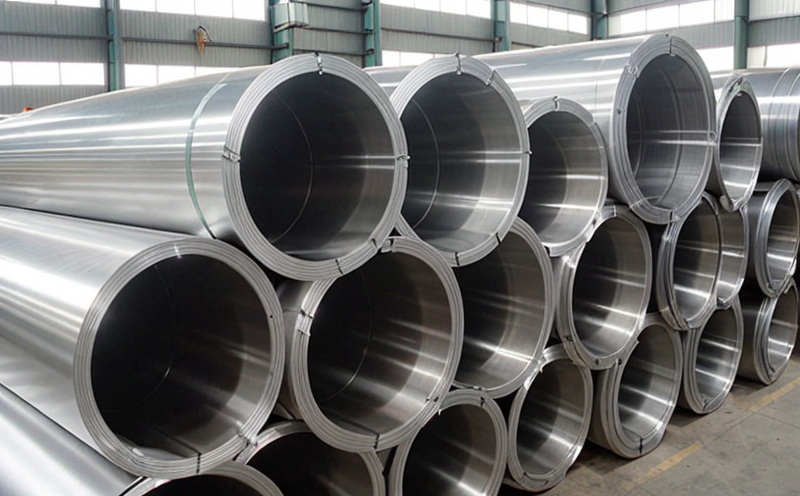IEC 60068-2-2 Dry Heat Simulation Testing of Ship Components
The IEC 60068-2-2 standard is a widely recognized international guideline for assessing the effects of dry heat on electronic and electrical components. This testing protocol is crucial for ensuring that materials like aluminium used in marine equipment meet stringent durability and performance standards.
In marine environments, where extreme temperatures can occur due to proximity to the sun or engine exhausts, it’s essential to simulate these conditions accurately within a controlled laboratory setting. The IEC 60068-2-2 test aims to replicate the heat stress that components might experience in real-world scenarios without exposing them directly to such harsh environments.
The testing process involves placing specimens made from aluminium and other materials into an oven where they are subjected to temperatures ranging from 150°C up to 300°C, depending on the material’s melting point. This high-temperature exposure simulates prolonged periods of heat stress that these components might encounter during their operational lifecycle.
During this test, engineers monitor various parameters including temperature rise, weight loss due to evaporation or oxidation, and dimensional changes. By analyzing how well materials perform under these conditions, manufacturers can identify potential weaknesses in design or manufacturing processes early on before products reach end-users.
The results from IEC 60068-2-2 testing are critical for compliance with international regulations governing the safety and reliability of marine equipment. Compliance ensures that ships remain safe to operate while minimizing risks associated with failures due to environmental factors like heat.
Accurate and reliable data obtained through this type of testing also helps shipbuilders make informed decisions about material selection, thereby enhancing overall product quality and reducing maintenance costs over time. Furthermore, successful completion of such tests can significantly boost a company’s reputation among industry peers and customers alike, fostering trust in both the brand name and its offerings.
For R&D engineers working on new designs or modifications to existing products, understanding how materials behave under extreme conditions allows for continuous improvement of product performance. This knowledge can translate into innovations that not only improve functionality but also contribute positively towards sustainability efforts by reducing waste from non-functional parts.
Why It Matters
The importance of IEC 60068-2-2 testing cannot be overstated, especially when dealing with materials like aluminium used in critical applications such as ship components. These tests are essential for several reasons:
- To ensure compliance with international safety standards.
- To verify that materials can withstand expected environmental stresses without failing prematurely.
- To provide data supporting claims made about product performance and longevity.
- To aid in the development of safer, more reliable products.
- To support regulatory requirements for manufacturing processes.
By undergoing rigorous testing according to IEC 60068-2-2 specifications, manufacturers demonstrate their commitment to producing high-quality marine equipment that meets or exceeds industry benchmarks. This not only enhances customer confidence but also helps companies stay ahead of competitors by offering superior products and services.
Benefits
- Achieves Compliance: Ensures adherence to international safety standards, facilitating smoother regulatory processes.
- Enhanced Reliability: Identifies potential weaknesses early in the design phase, leading to more robust products.
- Promotes Safety: Minimizes risks associated with component failure due to environmental factors like heat.
- Informed Decision-Making: Provides valuable insights into material behavior under extreme conditions, supporting informed decision-making throughout the product lifecycle.
- Better Reputation: Demonstrates a commitment to quality and reliability, enhancing brand reputation among industry professionals and consumers alike.
The benefits of IEC 60068-2-2 testing extend beyond mere compliance; they contribute significantly towards creating safer, more reliable products that meet or exceed customer expectations. By investing in this type of testing, manufacturers can position themselves as leaders in their field, setting new standards for quality assurance and innovation.





